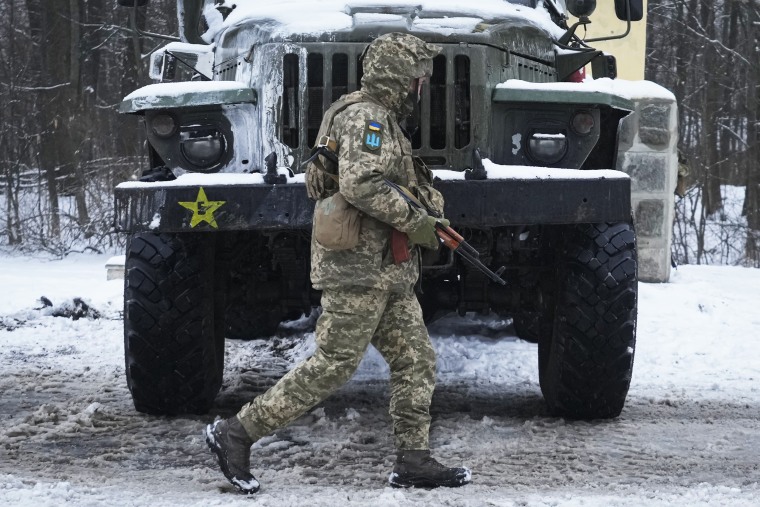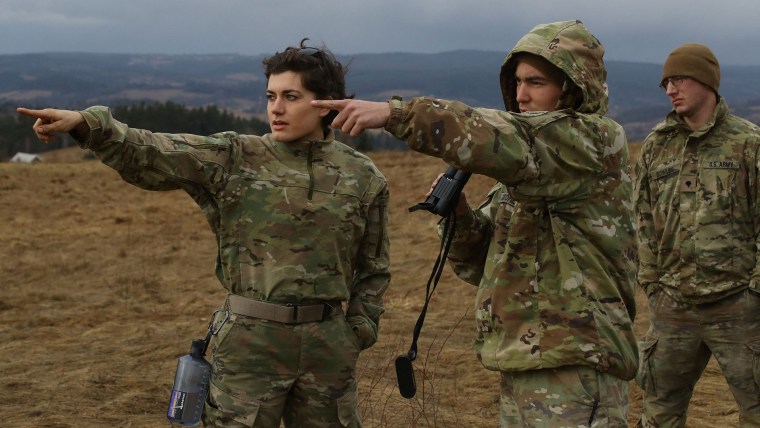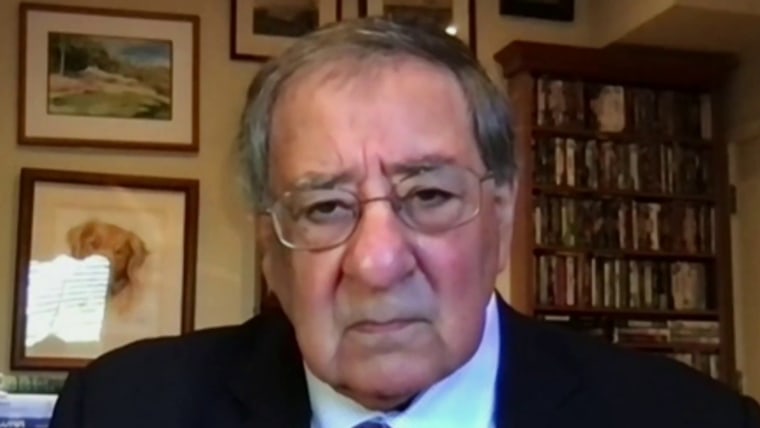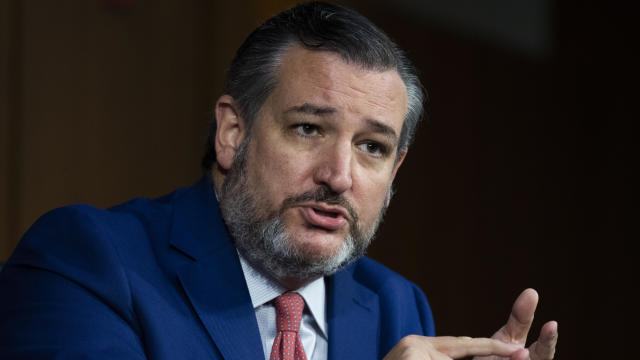Yahoo! News
Ukraine’s Zelensky, onetime comedian turned president, rallies nation against Russian invasion
Christopher Wilson, Senior Writer – February 25, 2022
Ukrainian President Volodymyr Zelensky said he would remain in the nation’s capital amid the Russian invasion, an actor turned politician encouraging his country to stay strong in a time of war.
Zelensky released a short video address early Friday local time, appearing unshaven and in a T-shirt, in which he said that despite misinformation to the contrary, he was still in the capital, Kyiv.
“I remain in the capital, I remain with my people,” Zelensky said. “During the day I held dozens of international talks, directly managing our country. And I will stay in the capital. My family is also in Ukraine. My children are also in Ukraine. My family are not traitors. They are citizens of Ukraine. But I have no right to say where they are now.”
Hours after the video went up, Russian missiles began to hit the city. Early Friday, Kyiv’s mayor said the capital “has entered into a defensive phase.” Meanwhile, the Defense Ministry told citizens to “make Molotov cocktails, neutralize the occupier!” as many took shelter in basements and subway stations.
During his statement, Zelensky said he had been made aware of Russian saboteurs already entering Kyiv and that “the enemy has marked me as target No. 1, my family as target No. 2. They want to destroy Ukraine politically by destroying the head of state.”
Russian President Vladimir Putin launched the invasion into Ukraine late Wednesday. President Biden and European allies have imposed economic sanctions against Russia in an attempt to curb its takeover of the sovereign nation.
Zelensky said in the video address that while he had received moral support from world leaders, no one was assisting in his country’s fight.
“We are left alone in defense of our state,” he said. “Who is ready to fight with us? Honestly, I do not see such. Who is ready to guarantee Ukraine’s accession to NATO? Honestly, everyone is afraid.”
“We are not afraid of anything,” he continued. “We are not afraid to defend our state. We are not afraid of Russia. We are not afraid to talk to Russia.”
Early Friday, Russia’s foreign minister said his country was not interested in talking to Ukraine’s leaders until Ukrainian troops had laid down their weapons.
Zelensky’s path to this moment was far from traditional. He rose to prominence as a comedian, actor and producer, including participating in a signature sketch in which he pretended to play the piano with his penis. In one of his final roles before entering politics, he played the president of Ukraine on the popular television series “Servant of the People.” In the show, Zelensky portrayed a high school teacher who is elected to the office after a video of him railing against corruption in the country goes viral. In 2018 his production company created a political party named after the show, and months later Zelensky announced he was running for office.
He eschewed traditional political events like rallies and ran a campaign centered on releasing video messages, offering a vague platform short on specific policies. In the end, the 41-year-old defeated incumbent President Petro Poroshenko with more than 70 percent of the vote in the April 2019 runoff election, becoming the nation’s sixth president. And just like his character in the show, Zelensky appointed close friends to fill some of the highest positions in the government.
“My election proves that our citizens are tired of the experienced, pompous system politicians who over the 28 years [since Ukraine’s independence] have created a country of opportunities — the opportunities to bribe, steal and pluck the resources,” he said in his inaugural address.
Three months after he was elected, Zelensky would have a phone call with U.S. President Donald Trump that would eventually get the latter impeached for attempting to pressure the Ukrainian leader into launching an investigation into Biden, then a top contender for the Democratic presidential nomination, in exchange for the release of military aid. In the lead-up to the Russian invasion this week, Trump repeatedly praised Putin.
A Jew who grew up in central Ukraine amid the fall of the Soviet Union, Zelensky has forcefully denied Putin’s baseless claims that part of Russia’s invasion was intended to “de-Nazify” Ukraine.
“The Ukraine on your news and Ukraine in real life are two completely different countries — and the main difference is ours is real,” Zelensky said in a speech Wednesday, just before the attacks were launched. “You are told we are Nazis, but how can a people support Nazis that gave more than 8 million lives for the victory over Nazism? How can I be a Nazi? Tell my grandpa, who went through the whole war in the infantry of the Soviet army and died as a colonel in independent Ukraine.”
“We are different,” he added, “but that is not a reason to be enemies. We want to determine, build our future ourselves, peacefully, calmly and honestly.”




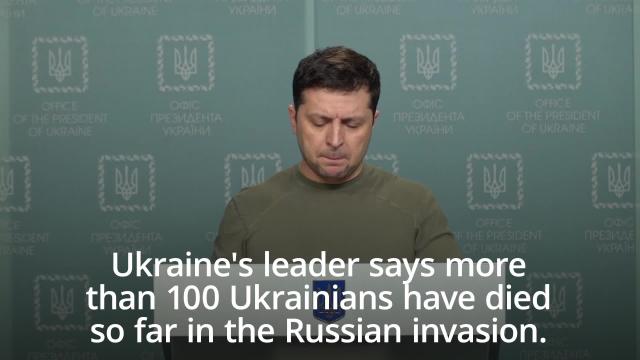 Scroll back up to restore default view.
Scroll back up to restore default view.